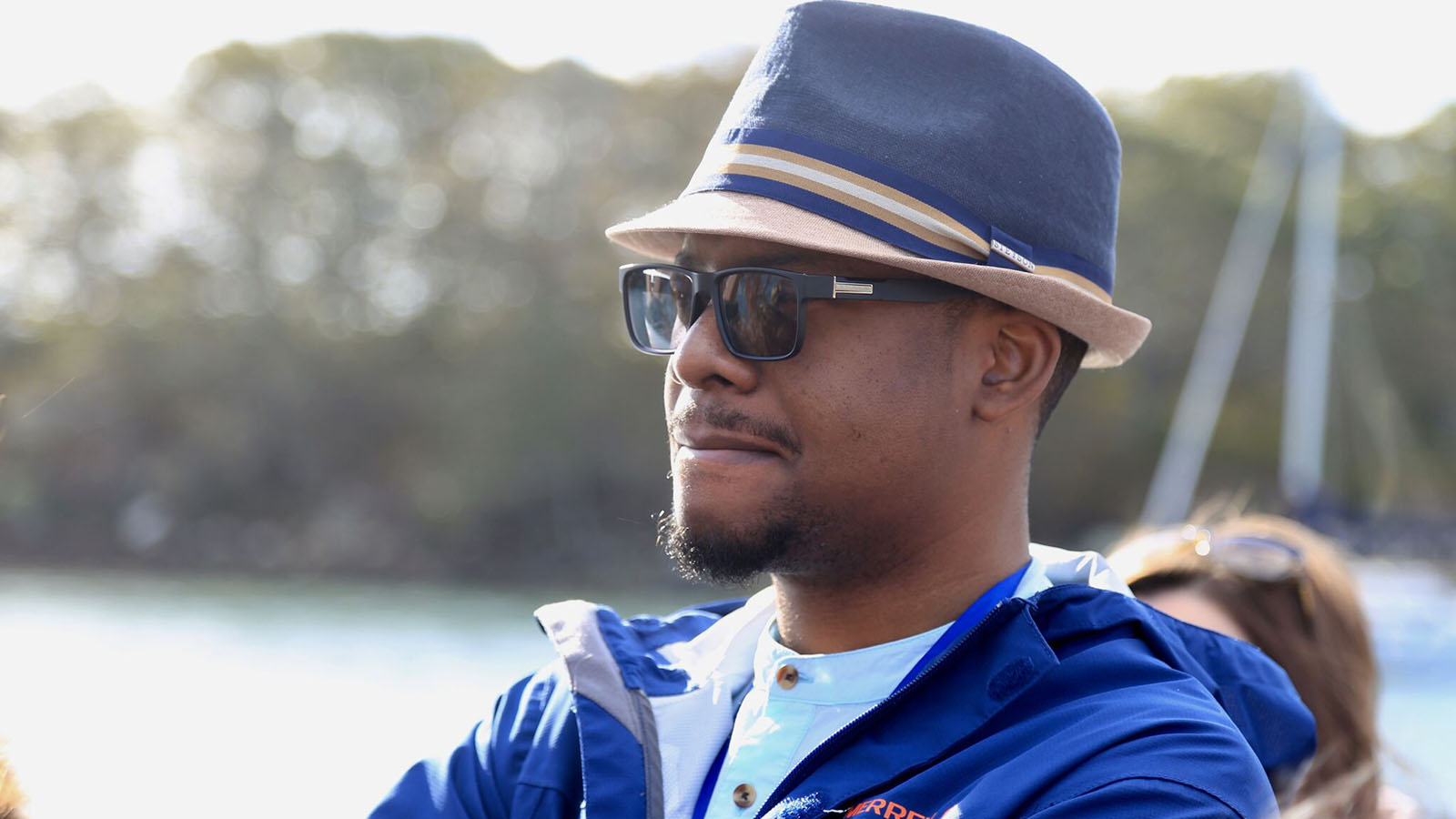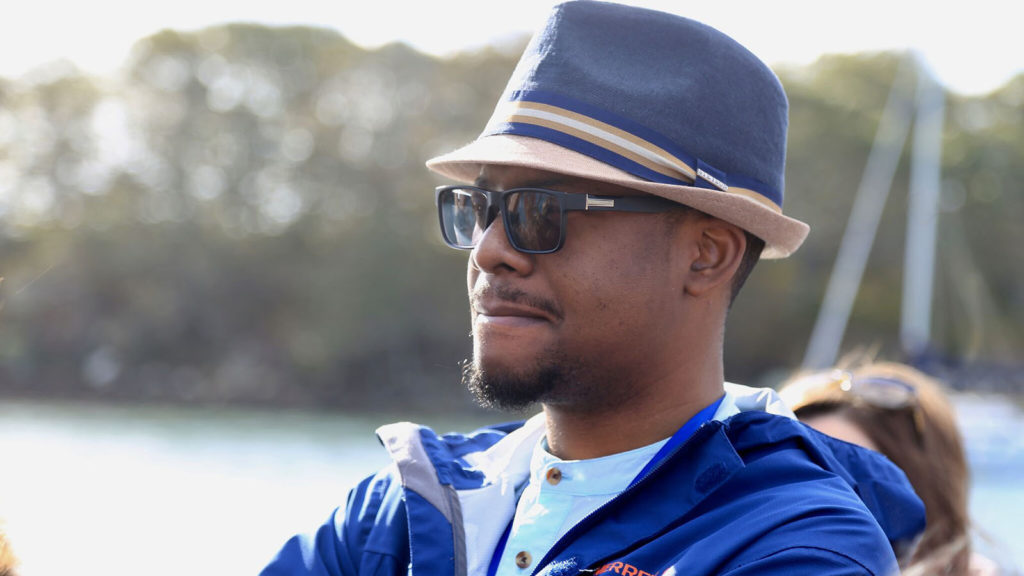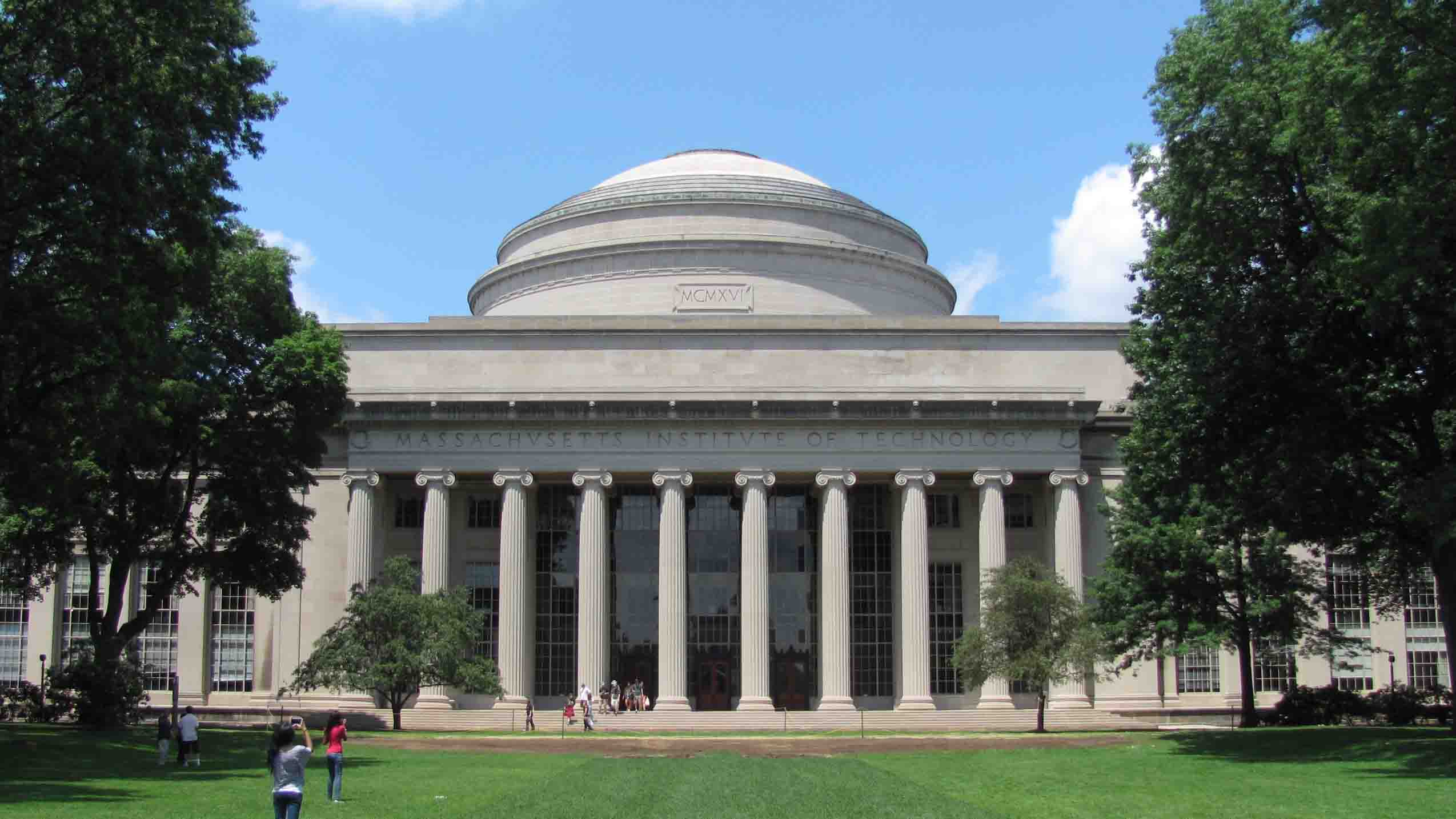
Kolawole Talabi takes his food very seriously.
The wiry, soft-spoken gentleman from Nigeria leans forward intently when asked about how concern over food production brought him to the Knight Science Journalism fellowship.
“In many parts of the world,” he begins after a moment’s thought, “meat production is an age-old economic activity that a lot of people are involved in. And if you go to developing countries, you still find that the way meat is produced is totally different from what you have in America or Western Europe.
“In the northern part of Nigeria, we’ve had conflicts between herding communities and farmers.… Because of climate change, population explosion, urbanization … the pressure on land has become very intense.… Thousands of people have been killed in the last few years, and it’s a crisis I felt I needed to do something about.”
For his fellowship research project, Talabi at first hoped to focus on that crisis. But finding few experts in the Cambridge area who understood the nuanced challenges of African transhumance — the seasonal movement of livestock from one grazing ground to another — he decided “to redirect my energies to work on shark conservation.”
“Fish is a cheap and ubiquitous alternative to meat as a source of protein for over 2 billion people in the world’s poorest regions,” he explains. “But then, not all fish belong on plates and platters.” Shark are imperiled in part because of the worldwide appetite for their fins.
Before coming to MIT, Talabi earned several accolades for his freelance science writing, including the World Health Summit Next Generation of Science Journalists Award in 2016. But he didn’t start out in journalism; in college he had a passion for cartography, and he had an earlier career as a researcher for a mobile company.
“The research skills I had formed while working for Nokia,” he says, “were a strong motivation for me to practice journalism, especially when you have to deal with technical and complex subjects.” And, he adds, “I’ve always enjoyed writing.”
Shortly before he began his fellowship, he won an impactAfrica award from the International Center for Journalists that allowed him to tour U.S. digital newsrooms, government agencies, and journalism schools in New York, Washington, Baltimore, and Atlanta.
“I had the privilege of meeting leading scientists and media luminaries at The New York Times, the Centers for Disease Control and Prevention, and Georgetown University,” among others, he says. “But for me the highlight of the tour was the visit to the Martin Luther King Jr. National Historic Site in Atlanta, where I saw how one man challenged the evil of racism and yet triumphed over it even in death.”





Leave a Reply